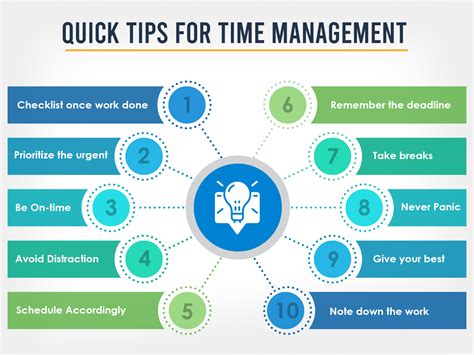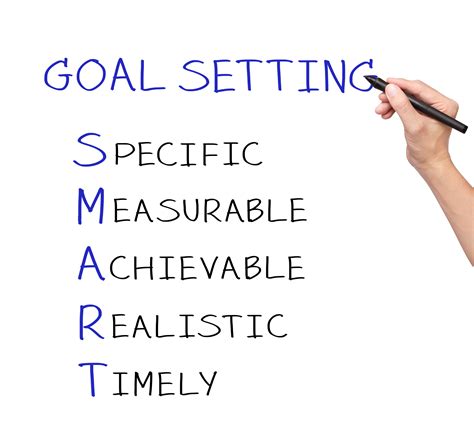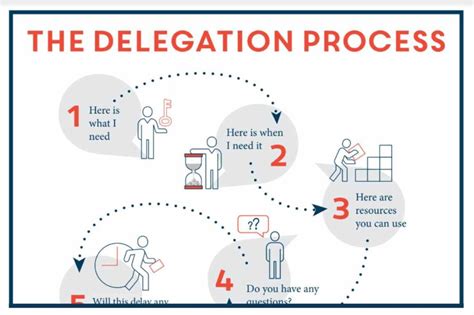Have you ever found yourself grappling with the incredible weight of expectations? Do you often feel uneasiness coursing through your veins as you strive to make your dreams a reality? If so, you are not alone. Life has an uncanny way of throwing curveballs our way, testing our resilience and fortitude.
Within this realm of relentless challenges and overwhelming pressures lies a multitude of hidden strategies and tactics, waiting patiently to be discovered. From harnessing the power of self-belief to embracing failures as stepping stones to success, the art of navigating through the tempestuous waters of life is an intricate puzzle worth exploring.
Embrace this journey with an open heart and a curious mind as we delve into the depths of effective coping mechanisms and unveil the enigmatic ways of transforming pressure into fuel for triumph. Brace yourself for a profound exploration of the path less traveled, where resilience and determination reign supreme, offering you the tools to transform dreams into reality.
Recognizing the Indications of Pressure and Strain

Being aware of the signals that denote high tension and strain is crucial in managing and overcoming these challenging emotions. Identifying the telltale signs can serve as a helpful guide in navigating through stressful situations and preventing the negative impacts they may have on our mental and physical well-being.
Physical Symptoms: In times of pressure and stress, our bodies often exhibit physical manifestations. These may include increased heart rate, tension in muscles, headaches, fatigue, and changes in appetite or sleep patterns.
Emotional and Psychological Changes: Recognizing the emotional and psychological alterations that come with pressure is equally important. These may include irritability, mood swings, excessive worrying, difficulty concentrating, feeling overwhelmed, and a decrease in motivation or enjoyment in activities once considered pleasurable.
Behavioral Patterns: Paying attention to our actions and behaviors can provide valuable insights into our stress levels. These may include increased use of substances such as tobacco, alcohol, or drugs, withdrawal from social interactions, procrastination, difficulty making decisions, and changes in our usual routine or habits.
Cognitive Changes: The way we think and perceive situations can also be affected by pressure and stress. Knowing the cognitive changes that may occur can help us address and reframe negative thought patterns. These may include excessive worrying or pessimism, difficulty concentrating or making decisions, racing thoughts, forgetfulness, and a distorted sense of time.
Overall, being able to identify these signs allows us to take proactive steps towards managing stress and finding healthy coping mechanisms. By acknowledging and addressing these indicators, we can work towards achieving a balanced and fulfilling life.
Building a Supportive Network to Alleviate Stress
In today's fast-paced world, where stresses and challenges seem to be ever-present, it is crucial to establish a strong support network to help navigate through difficult times. By fostering relationships with understanding individuals who can provide emotional, moral, and practical support, you can effectively alleviate pressure and overcome obstacles on your path towards achievement.
Emotional Support: Having someone who genuinely listens to your concerns, empathizes with your experiences, and offers encouragement can significantly help you manage stress and maintain a positive mindset. Whether it is a trusted friend, a family member, or a mentor, having someone to confide in and share your emotions with can provide a sense of relief and perspective during challenging times.
Moral Support: Surrounding yourself with individuals who believe in your abilities, dreams, and aspirations can be a powerful motivator. These individuals can offer guidance, validation, and constructive feedback, lending you the necessary reassurance to persist through difficulties and stay focused on your goals. Knowing that you have people who believe in you can boost your confidence and fuel your determination.
Practical Support: Building a supportive network also involves forming connections with people who possess the skills, resources, or knowledge that you may require on your journey. These individuals can provide practical assistance, guidance, and expertise, facilitating your progress towards achieving your dreams. Whether it is through collaborative efforts, mentorship, or learning from others' experiences, surrounding yourself with a diverse range of talents can help you overcome obstacles more effectively.
In conclusion, establishing a supportive network is essential for anyone seeking to cope with pressure effectively and achieve their dreams. By fostering relationships with individuals who provide emotional support, moral encouragement, and practical assistance, you can find the strength and guidance needed to navigate through life's challenges with resiliency and determination.
Mastering Effective Time Management Techniques

In this section, we will explore the art of crafting efficient strategies for managing your time effectively. With precision and organization, you can optimize your productivity, leading you closer to achieving your aspirations and ambitions. Let us delve into some valuable insights and practical tips that can help you develop effective time management techniques.
- Set Clear Priorities: Begin by evaluating your goals and tasks, determining what is most important and what can be delegated or eliminated altogether. By establishing priorities, you can focus your time and energy on the activities that will have the greatest impact on reaching your desired objectives.
- Create Realistic Schedules: Time is a finite resource, so it is vital to allocate it wisely. Develop realistic schedules that allow for dedicated time to work on specific tasks, while also factoring in breaks and other commitments. Rigid schedules may not always be feasible, but having a general plan helps to provide structure and keep you on track.
- Utilize Time Management Tools: Take advantage of a variety of time management tools and techniques available to help streamline your efforts. From digital apps and calendars to traditional planners and to-do lists, find what works best for you in terms of organizing, prioritizing, and tracking your tasks and goals.
- Practice Efficient Task Management: Break down larger tasks into smaller, more manageable components. This approach not only makes daunting tasks less overwhelming but also allows for a sense of progress as you complete each subtask. Additionally, consider employing techniques such as the Pomodoro Technique or time blocking to enhance focus and productivity.
- Avoid Multitasking: Contrary to popular belief, multitasking often leads to decreased efficiency and quality of work. Instead, concentrate on one task at a time, giving it your full attention and effort. By eliminating distractions and focusing on the present moment, you can maximize your productivity and achieve better results.
- Learn to Delegate: Recognize that you cannot do everything on your own and be willing to delegate tasks to others whenever possible. Delegation not only frees up your time but also allows you to leverage the skills and expertise of those around you.
By implementing these effective time management strategies, you can take control of your time, reduce stress, and pave the way for greater success in your personal and professional endeavors. Remember, effective time management is a skill that can be cultivated and improved over time, so be patient and persistent in your efforts. Start implementing these strategies today and watch as you move closer to realizing your dreams.
Exploring Relaxation Techniques for Alleviating Stress
In today's fast-paced world, it is essential to take a step back and focus on our well-being. Incorporating relaxation techniques into our lives can provide a valuable tool for managing stress and promoting a healthier way of living. This segment delves into the various practices that can help individuals achieve a sense of calmness and tranquility, allowing them to combat pressures and strive towards their aspirations.
| Technique | Description | Benefits |
|---|---|---|
| Deep Breathing | Engaging in slow, controlled breaths that originate from the diaphragm, allowing oxygen to fill the lungs and promoting relaxation. | Reduces stress and anxiety, enhances focus and concentration, lowers blood pressure. |
| Meditation | Focusing the mind and redirecting thoughts to achieve a mentally clear and emotionally calm state. | Reduces stress, improves self-awareness and emotional well-being, enhances mental clarity and creativity. |
| Progressive Muscle Relaxation | Tensing and releasing different muscle groups to promote relaxation and release tension from the body. | Reduces muscle tension and chronic pain, aids in better sleep, promotes overall physical and mental relaxation. |
| Yoga | A combination of physical postures, breath control, and meditation techniques to promote balance, flexibility, and relaxation. | Improves strength and flexibility, reduces stress and anxiety, enhances mental and physical well-being. |
| Guided Imagery | Using visualizations and mental imagery to create a peaceful and relaxing experience, often guided by an instructor or through recorded sessions. | Reduces stress and anxiety, enhances self-awareness and mindfulness, promotes a sense of calmness and clarity. |
By incorporating these relaxation techniques into your daily routine, you can effectively manage stress, improve mental well-being, and create a foundation for achieving your personal aspirations. Embracing the power of relaxation can lead to a more balanced and fulfilling life.
Setting Realistic and Attainable Goals: A Path to Success

In the realm of personal and professional development, one of the most powerful tools at our disposal is the skill of goal setting. By defining clear targets and aspirations, individuals can navigate their journey towards success with determination and focus. Setting realistic and attainable goals is an essential step in this process, as it allows us to establish a solid foundation for growth and progress.
Why is setting realistic and attainable goals important?
Setting realistic and attainable goals is crucial for several reasons. Firstly, it provides clarity and direction, acting as a roadmap towards our ultimate vision. By outlining specific and measurable objectives, we can break down our dreams into manageable steps, enhancing our motivation and confidence along the way. Additionally, realistic goals help us stay grounded and ensure that our efforts are in line with our current capacities and resources. This prevents burnout and facilitates a sense of accomplishment as we achieve milestones that move us closer to our desired outcome.
How to set realistic and attainable goals?
When setting realistic and attainable goals, it is important to consider the SMART framework. SMART stands for Specific, Measurable, Achievable, Relevant, and Time-bound. By applying these principles, individuals can ensure that their goals are well-defined, trackable, within reach, aligned with their values and aspirations, and bound by a specific timeframe. Breaking down larger goals into smaller, actionable steps further enhances their attainability and provides a sense of progress along the journey.
The benefits of setting realistic and attainable goals
The process of setting realistic and attainable goals offers numerous benefits. It instills a sense of purpose and direction, helping individuals prioritize their actions and make meaningful progress. By focusing on attainable goals, individuals are more likely to experience a sense of accomplishment, boosting their confidence and motivation to pursue further objectives. Moreover, realistic goals enable individuals to assess their progress effectively, identify any necessary adjustments, and celebrate achievements along the way.
In conclusion
Setting realistic and attainable goals is an integral part of achieving success. By understanding the importance of this practice, individuals can harness the power of goal setting to navigate their journey towards accomplishing their dreams. Embracing the SMART framework, breaking down goals into manageable steps, and reaping the benefits of progress and growth, individuals can unlock their full potential and transform their dreams into reality.
Cultivating a Positive Mindset for Resilience
In this section, we will explore methods and strategies to develop a constructive outlook that promotes resilience in the face of challenges. Understanding the power of a positive mindset and its ability to bolster our ability to overcome obstacles is vital to achieving personal growth and fulfillment. By cultivating an optimistic perspective and nurturing resilience, we can navigate through the ups and downs of life with grace and determination.
Mastering Effective Prioritization and Delegation Techniques

In today's fast-paced world, it is crucial to have the skills to prioritize and delegate tasks efficiently in order to achieve your goals. Learning how to effectively manage your time and responsibilities can help you maintain focus, reduce stress, and maximize your productivity.
Effective prioritization involves identifying and organizing tasks based on their importance and urgency. By categorizing your tasks, you can ensure that you are allocating your time and energy to the most critical ones first. Prioritization allows you to assess the impact and consequences of each task, ensuring that you are working on the most meaningful and impactful activities.
Furthermore, the ability to delegate tasks is essential for productive and efficient time management. Delegating tasks not only helps lighten your workload, but it also allows you to leverage the strengths and skills of others. Delegation promotes collaboration, fosters a sense of shared responsibility, and fosters a more efficient work environment.
To effectively delegate tasks, it is important to consider the abilities and expertise of your team members or colleagues. Assigning tasks to individuals who are best suited to handle them ensures that the work is done efficiently and effectively. Delegation also allows you to focus on higher-level tasks that require your specific knowledge and skills.
| Key Benefits of Prioritization and Delegation: |
|---|
| 1. Improved time management |
| 2. Reduced stress and overwhelm |
| 3. Increased productivity and efficiency |
| 4. Enhanced collaboration and teamwork |
| 5. Focus on high-priority tasks |
By mastering the art of prioritization and delegation, you can create a balanced work-life dynamic, effectively manage pressure, and achieve your dreams with greater ease and clarity.
Embracing Failure to Grow and Achieve
Failure is often perceived as a negative and discouraging experience, but it can actually be a valuable opportunity for personal growth and eventual success. By reframing failure as a learning experience, individuals can overcome challenges, develop resilience, and move closer to their dreams.
Embracing failure allows individuals to take risks and step out of their comfort zones, pushing the boundaries of what they thought was possible. It provides an opportunity to learn from mistakes, understand weaknesses, and develop new strategies for improvement.
Failure provides the chance to gain valuable insights and wisdom that can only be acquired through firsthand experience. It helps individuals understand their limitations, and motivates them to cultivate new skills, knowledge, and perspectives that are essential for future accomplishments.
- Accepting failure as a natural part of the journey towards achieving dreams promotes a growth mindset and resilience.
- Failure teaches valuable lessons about perseverance, determination, and the importance of adapting to change.
- Embracing failure fosters a sense of self-awareness and helps individuals identify their strengths and weaknesses.
- Failure provides an opportunity for reflection and allows individuals to reassess their goals, strategies, and priorities.
- By learning from failure, individuals can develop resilience, bounce back stronger, and move closer towards their dreams.
In conclusion, embracing failure as a learning opportunity is crucial for personal growth and achieving dreams. It enables individuals to develop resilience, gain valuable insights, and redefine their strategies. By reframing failure as a stepping stone towards success, individuals can navigate challenges, overcome setbacks, and ultimately realize their aspirations.
Seeking Professional Support and Counseling to Manage Overwhelming Situations

When faced with the challenges that life brings, sometimes we may find ourselves feeling overwhelmed and unsure of how to cope. In such situations, seeking professional help and counseling can be an effective way to navigate through these difficult times.
Professional support and counseling provide individuals with a safe and confidential space to express their thoughts, emotions, and concerns. It offers a meaningful opportunity to explore and understand the underlying causes of the pressure they are experiencing.
By engaging in therapy sessions, individuals can gain valuable insights into their own resilience and coping mechanisms. Through guidance from trained professionals, they can learn healthy strategies to better manage their stress and overcome obstacles on their path towards achieving their goals.
Therapists can provide individuals with practical tools and techniques to develop resilience, enhance self-awareness, and build effective problem-solving skills. They can assist in identifying and addressing negative patterns of thinking and behavior that may be contributing to the pressure they are facing.
Moreover, counseling allows individuals to discover their own strengths and capabilities, helping them build a solid foundation to face life's challenges head-on. The presence of a supportive professional can instill confidence and provide the necessary encouragement to pursue their dreams.
Overall, seeking professional help and counseling can be a crucial step in managing pressure and achieving personal growth. It can empower individuals to develop effective strategies, foster resilience, and create a healthy mindset, leading them towards a more fulfilling and successful life.
FAQ
Is pressure always a negative thing?
No, pressure can be both negative and positive. While excessive pressure can be harmful, moderate levels of pressure can actually motivate individuals to perform better and achieve their goals.
Can pressure hinder one's ability to achieve their dreams?
Yes, excessive pressure can potentially hinder someone's ability to achieve their dreams. It may lead to burnout, stress, and make it difficult for individuals to stay focused on their goals. It's important to find a balance between pushing oneself and taking care of one's well-being.
How can setting goals help in managing pressure?
Setting goals allows individuals to have a clear direction and purpose. It helps to break down larger tasks into manageable steps, which can reduce feelings of being overwhelmed. By working towards specific goals, individuals can prioritize their efforts and stay motivated, even under pressure.
What are some ways to cope with pressure?
There are several ways to cope with pressure. First, it's important to identify the source of pressure and determine if it's something you can control or not. If it's within your control, you can break it down into smaller manageable tasks and prioritize them. Additionally, practicing deep breathing exercises, engaging in physical activities, and maintaining a healthy lifestyle can all help in dealing with pressure. Seeking support from friends, family, or a therapist can also be beneficial.



